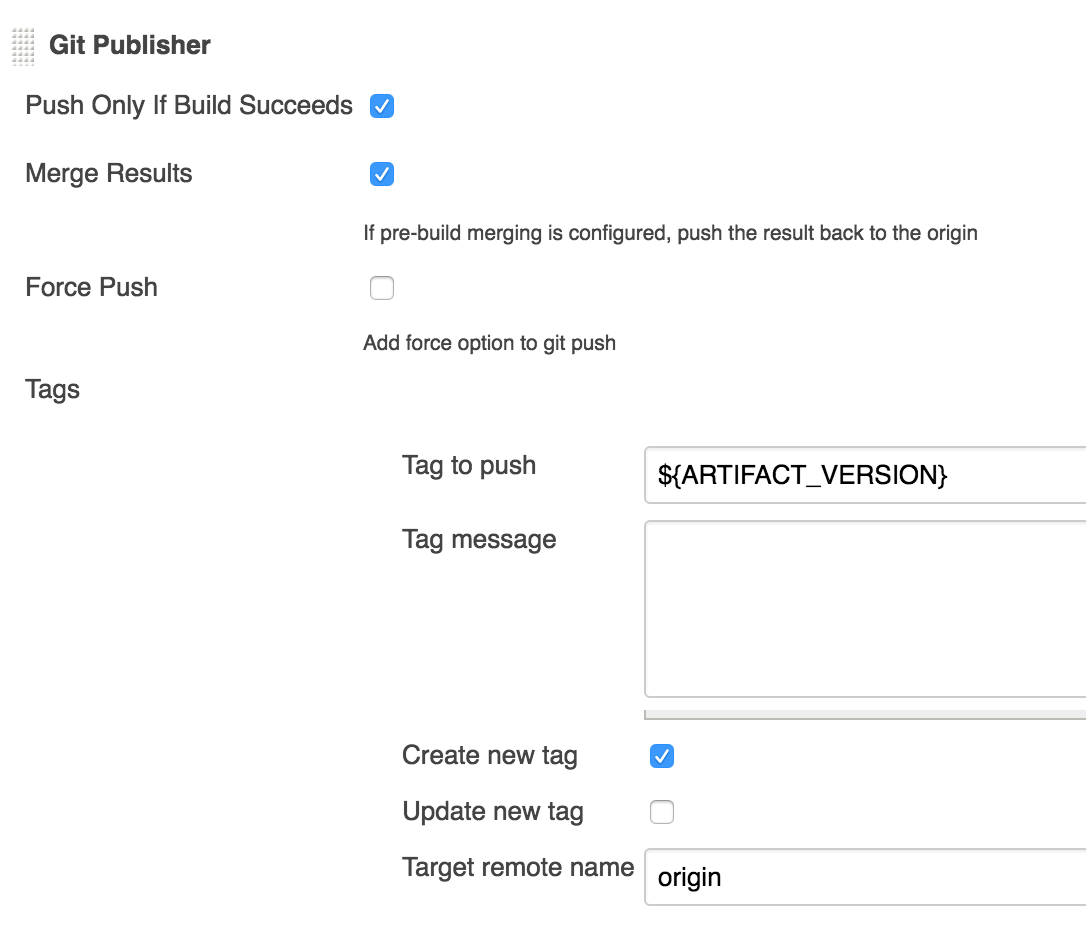# continuous-publish-plugin
This project provides a [Gradle](https://gradle.org/) plugin to help you continuously publish your project.
## Adding to your Gradle project
To get the dependency, you will need a `buildscript` block at the top of your build.gradle:
```
buildscript {
repositories {
maven () {
url "https://code.doit.wisc.edu/maven/content/repositories/uw-releases"
credentials {
username codeDoitUsername
password codeDoitPassword
}
}
}
dependencies {
classpath 'edu.wisc.doit.gradle:continuous-publish-plugin:<current_version>'
}
}
```
Replace *<current_version>* with the current version of this project.
Note the `codeDoitUsername` and `codeDoitPassword` properties.
This project is distributed via the [Shared Tools Maven Artifact Repository](https://wiki.doit.wisc.edu/confluence/display/ST/Maven+Repository+Manager),
you will need a file (or symlink) named `gradle.properties` containing the following properties:
```
codeDoitUsername=your-netid-username
codeDoitPassword=your-code.doit-password-token
```
After that, apply the plugin like so:
```
apply plugin: `edu.wisc.doit.gradle.continuous-publish-plugin`
```
## Usage
This plugin provides tasks that are best intended to be invoked by a Continuous Integration environment like Jenkins.
### On Pull Requests
The `confirmProjectVersionIncremented` task is intended to be executed during a pull request to confirm that the contributor has incremented the `project.version` field in the project's `build.gradle` ahead of the current value in the file on the target branch.
If the merged result on build.gradle has `project.version` that is greater than what `git describe` returns, the build will be allowed to proceed. Otherwise, a GradleException is thrown to fail the build.
This behavior can be skipped by adding the following to your `build.gradle`:
```
cpublish {
skip: true
}
```
### On commits to master branch
If a commit lands on master, and `cpublish.skip` is false, you can have confidence that the gradle `project.version` includes a new value. Running `gradle uploadArchives` to publish a new release will work.
After the `uploadArchives` task completes, you can have Jenkins tag the release and push the tag to the repository.
1. In your Jenkins build job, in the **Build** section, add a `Execute system Groovy script` step, and have it run a copy of the provided [artifact-version.groovy](artifact-version.groovy).
2. In the same job, in the **Post-build actions** section, add a `Git Publisher` step, and configure it:

## Developing the plugin
1. Java 8
2. Gradle *(optional, [Gradle wrapper](https://docs.gradle.org/current/userguide/gradle_wrapper.html) is provided)*
## Building the plugin
> ./gradlew build